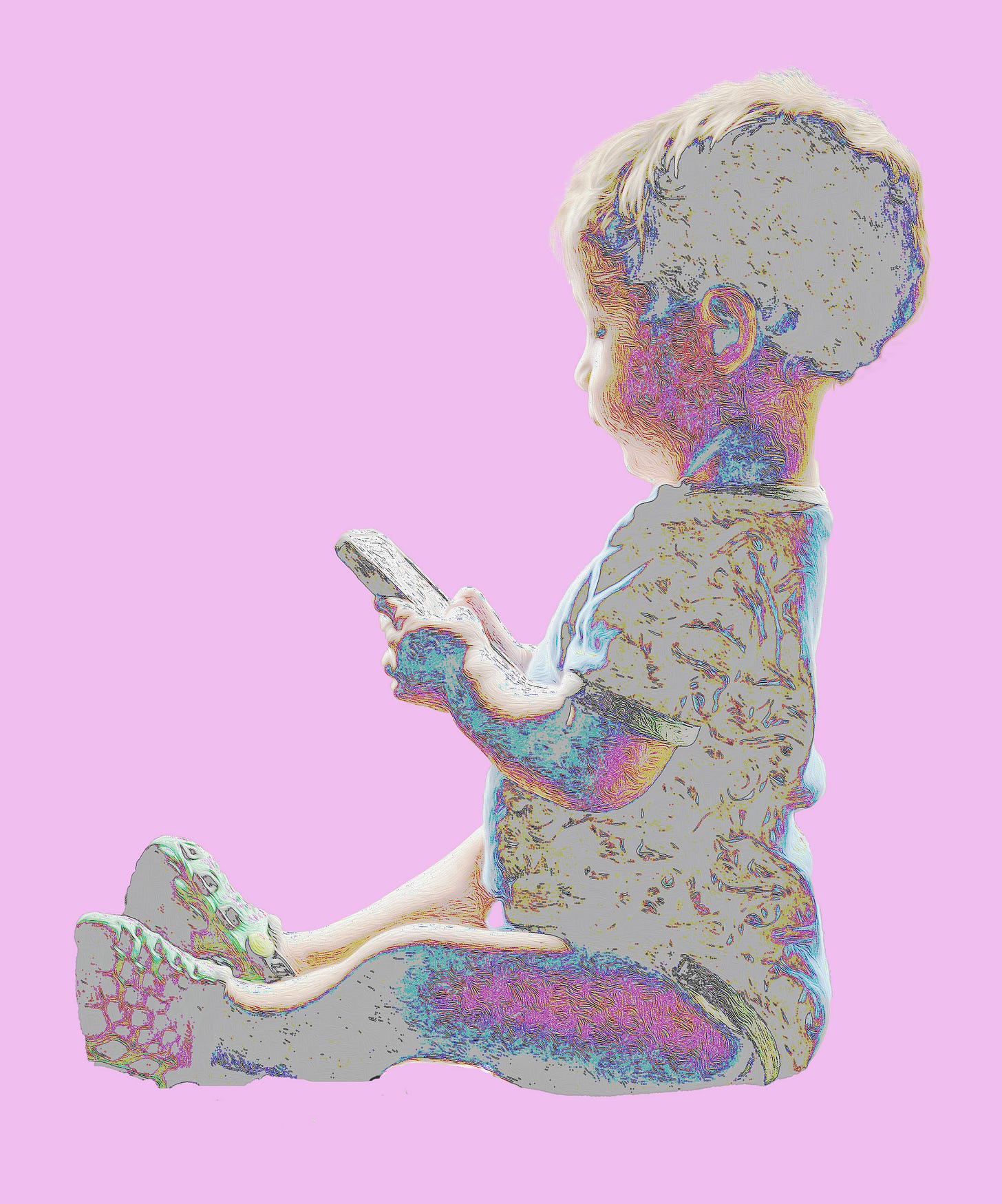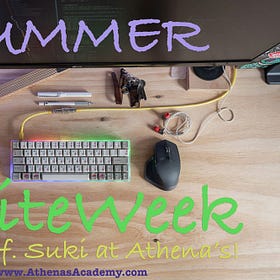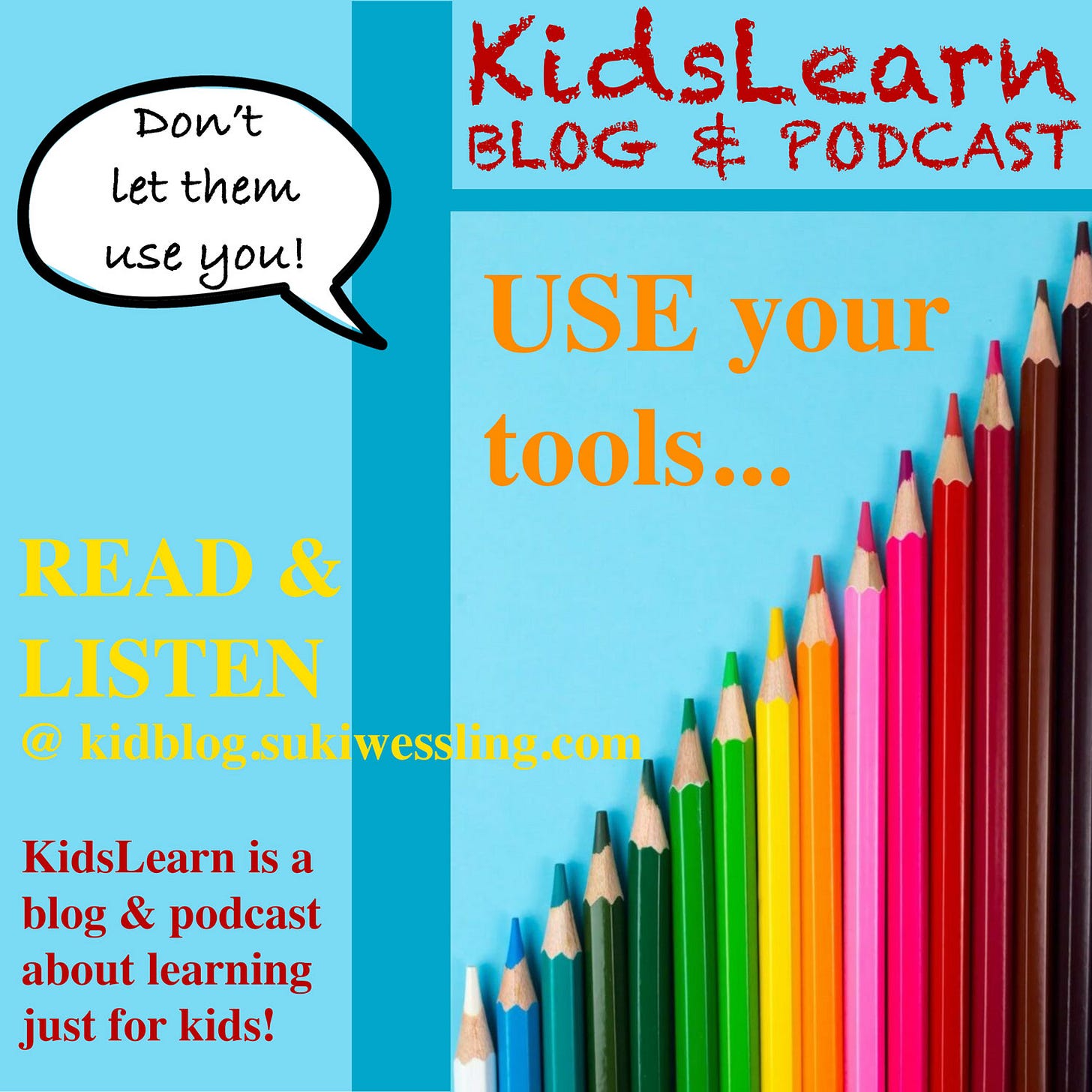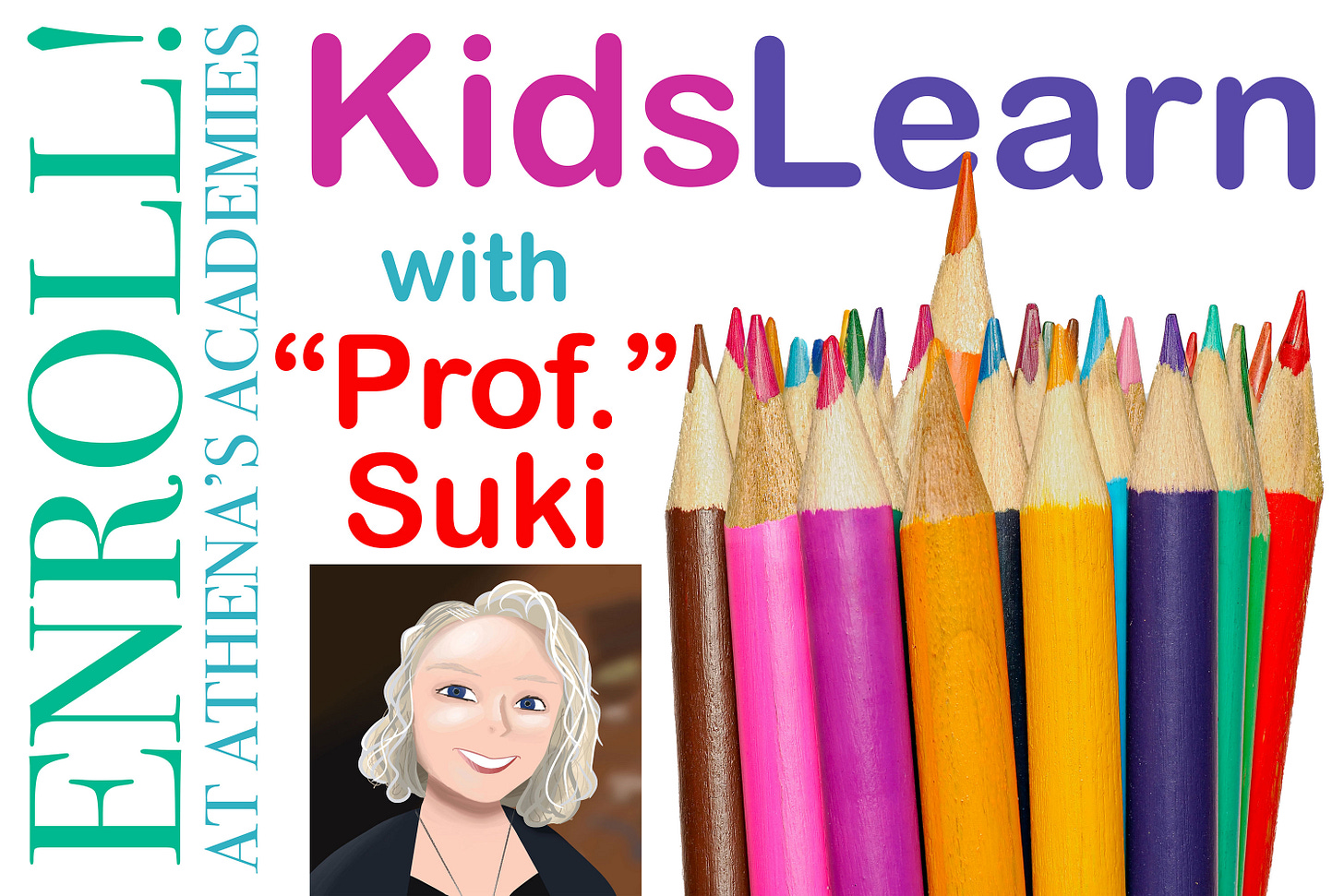The KidsLearn Substack is written by Suki Wessling, known as “Prof.” Suki to her students. Scroll to the bottom for links to Suki’s work and more information.
Recently I read an excellent piece about toddlers and smartphones and it led me to think about my own family’s experience with digital media. In a way, we were lucky: our kids were born in 99 and 02, so I didn’t even have a smartphone until they were well past toddlerhood.
But I shared the same struggles as parents today do, because the more things change, you know, the more they stay painfully the same. The particulars of parenting change, but the challenges tend to follow the same worn-out plot lines.
As my kids were well into their teen years, we started to see their compatriots struggling. They were struggling in academics. They were struggling in relationships. They were fighting with their parents. They were hiding in their bedrooms. This was just before the pandemic, when we didn’t yet have an illness to blame for the illness that was infecting our culture.
One day I was chatting with my younger one and asked him why he thought some of the kids around him were having such a rough time.
“Well,” he suggested, “you didn’t give me an iPhone as a chew toy.”
To be fair, we didn’t have that choice since iPhones hadn’t been invented when he was teething. But he wasn’t pulling this example out of nowhere. One of the younger siblings in his friend group literally did use their mom’s phone as a chew toy. One time the toddler chew-dialed someone the mom had been having a conflict with. Really.
But I did have the universal challenge of what to do with our kids’ energy when I didn’t have any. What to do with our kids’ focus when I needed to focus on something but them. What to do with our kids’ very messy emotions when my own were sucking the life out of me. That’s what I mean about the worn-out plot lines: Parenting challenges in the particular do change; parenting challenges in the general go round and round that merry-go-round.
“You didn’t give me an iPhone as a chew toy.”

A screen-free childhood. Sorta.
My husband is a computer scientist. At the time our first child was born, I was not only a writer but also a web designer and Internet consultant for our local SBDC. We loved computers. We loved the Internet.
But we decided to give our kids a mostly screen-free childhood.1 We largely stopped watching TV. When we used our computers around our kids, we used them as tools. When we watched a movie or show on our TV, we did it as a family.
It didn’t last, of course. Our second child was extremely challenging, and after he was politely asked to take a break from preschool, I was getting no time for myself. I called up a friend whose kid was a videohead (our designation) and said, “Please, tell me some kids’ videos I won’t absolutely hate.”
Enter Thomas the Tank Engine and home videos…
My friend gave me a pile of DVDs her kid had outgrown, and they helped buy me some quiet time. But eventually, what caught my younger one’s attention were home videos. We had made DVDs of all the little videos we’d taken and our baby-obsessed child just loved popping in a disk to watch himself and his sibling as babies. The TV-watching was the first crack in our armor, but his fascination with home video was the key to the solution.
…then YouTube and Minecraft.
I love making stuff, so the kids and I started making little produced videos. They’d write a script, or just ad lib, create costumes, and set the scene. I’d put it all together and post it on YouTube for our family and friends. Soon, of course, our younger one wanted to make his own. This was around the time that the older one had been introduced to Minecraft and wanted to learn how to program mods. So all of a sudden, our screen-free-ish family was letting our kids out into the wilds of the Internet!
Our resistance was futile. Or was it?
Now, you might be thinking we failed when we allowed our preteen and young teen to use these platforms. But we didn’t, because we’d never planned to remain screen-free forever, and in fact, we were never truly screen-free. I am self-critical of my very real failures as a parent, but the achievement that I’ll stand by is this: We had taught our kids to see their devices as tools for creativity. A computer or a phone, like a hammer, can make some cool stuff. It can also give you a big fat headache and even a concussion.
Parents have always had to teach kids to use tools wisely.
My grandparents’ generation had hammers and go-carts. My parents’ generation had radios and chemistry sets. My generation had early computers, videogames, and television. My kids’ generation had computers and the Internet. Your kids’ generation has tiny devices that contain the world. But no matter what tools a generation is given, the parents’ job is to teach the kids how to use them.
I am aware how much more difficult the job is getting. A kid who was pissed at his parents in 1920 might go down to the river; hopefully his parents taught him how to swim. A kid in 1960 who wanted to rebel might go to the sock hop and hang with a rough crowd; hopefully her parents taught her to resist peer pressure. A kid in 2000 could find their way into an adult chat room; hopefully their parents taught them to be suspicious of offers that seem too good to be true. A kid in 2025?
Your job is huge now.
The stakes are so high. You’re finding out that you screwed up. You did screw up, because we all do. Accepting that we can’t do everything right is part of what makes a good parent. But unlike those 1920, 1960, and 2000-era parents, you were utterly unprepared for the challenges of modern parenting because those challenges now come with an ease of access that defines our era.
Your kid can go online and see porn in the privacy of their bedroom. Your kid can go on Snapchat and buy drugs. Your kid can go to an adults-only site, lie about their age, and get in without your knowing. Your kids’ friends don’t come to your house anymore; they meet online. Who are they?
The importance of summer writing time
This summer, kids 11+ will join together for an action-packed week, starting with planning and culminating with publishing! Click for details.
But your job is the same.
The answers to today’s problems may sound harder, but they are the same as they’ve always been. And here they are:
Be interested in your kids. Talk to them. Read with them. Look at Instagram together, if that’s what they like. Meet them where they are, whatever it takes.
Include your kids in your adult life. Keep dragging your kid into the real world with real people in real social situations. Don’t accept that they “can’t” do that. You’re the parent. They can.2
Show your kids that you value their interests, right from the start. Tell your two-year-old that you love balancing on curbs and pretending you’re an airplane. And then love balancing on that curb and pretending you’re an airplane.3
Be involved in their lives while giving them appropriate independence. Don’t lock them away from the world, but don’t just give up. Meet your kids’ friends. Meet their parents. You’re the parent; you can do that. Nothing has changed in that realm.
Teach your kids the value of tools and how to use them. That goes for the hammer and the chainsaw as well as the phone and the laptop. They are tools. Their devices don’t own them. Remind them that they have a choice; they have agency.
As a culture, we abdicated our responsibility to our children.
We have let corporations make decisions about what our kids should see and do online. But corporations aren’t people, no matter what the Supreme Court says. It is our shared responsibility as people to take back our responsibility for children’s welfare. Your kids need you and you need them. Never let a device tell you otherwise.
Related: On my KidsLearn blog & podcast for KIDS: How can you be sure that you use your digital devices wisely... and that you don't let them use YOU?

The reason we decided to avoid screens is another whole story. The short version is that we noticed how the TV would distract our first baby from nursing. We thought, wow, he’s more interested in those images than food? This is disturbing…
I understand the challenges of parenting children with disabilities and mental health challenges, so please don’t take this as shaming. As with any parenting advice, adapt it to your child’s particular situation.
Again, I understand the reality of busy parents. But every parent has time to make connections with their kids, because if you don’t do that, you can’t imagine how much time you’ll spend later trying to fix the time you didn’t spend when they were young.










This is fantastic! Thanks for linking my piece, too! :)